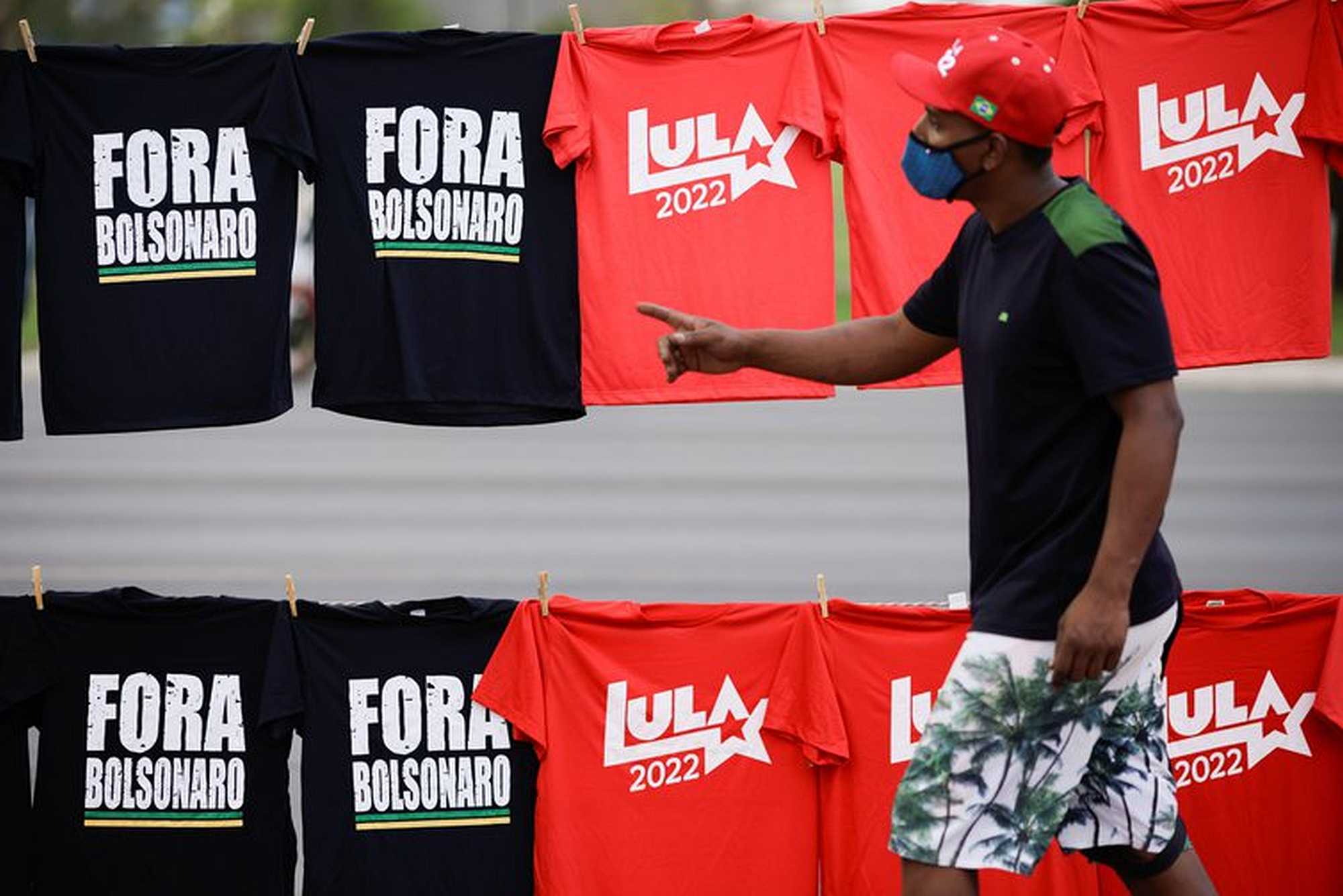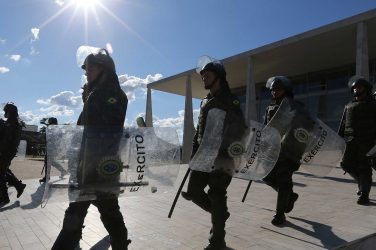There is less than a year until Brazilians deliver their verdict on President Jair Bolsonaro. With next October’s presidential election slowly approaching, Bolsonaro, whose popularity has crashed amid his desperate handling of the COVID crisis, is expected to face a stiff challenge at the ballot box. The main threat to the far-Right incumbent is expected to come from Luiz Inácio Lula da Silva, or Lula, as he is widely known.
Lula, who governed Brazil between 2003 and 2010, was convicted of corruption and sentenced to more than nine years in prison in 2017. That conviction was then overturned by a supreme court judge in March 2021, leaving the center-left candidate free to pursue another presidential campaign.
The divisive nature of both candidates has not gone unnoticed. Indeed, the Brazilian media’s portrayal of the battle between Bolsonaro and Lula has been one of “polarization”. A vote for one or the other is seen as emotionally charged, a preference that pushes the country to the extremes of the political spectrum. Instead, many see a middle path, a so-called terceira via or “third way”, with a moderate candidate as the best way forward for Brazil.
After all, both men will have to deal with disaffected voter bases. Despite Lula’s acquittal after long-running judicial battles over alleged corruption, he is saddled with the image of the ladrão (thief) in the eyes of many, especially among Bolsonaro’s base. This is one reason that many vow never to vote for Lula again.
As for Bolsonaro, he is often labeled a maluco (madman), even by some of his own supporters. Informal conversations with Bolsonaro voters ahead of pro-government demonstrations on 7 September, Brazil’s independence day, generally had the same theme. Those who said they were disappointed by Bolsonaro referred to him as “mad” or “crazy”, especially in the context of managing COVID and the vaccination effort.
They saw Bolsonaro’s management of the pandemic as cruel, indifferent and largely incompetent governance. Interestingly, however, even disillusioned Bolsonaro voters seemed unwilling to associate him with corruption. This is despite the fact that Bolsonaro and members of his family face several ongoing corruption and money-laundering investigations.
That said, a recent Datafolha national poll showed Bolsonaro’s approval rate plummeting to a record low. With more than half of those interviewed rating his government as “bad” or “terrible”, Bolsonaro appears politically weakened and more reliant than ever on the most “faithful” parts of his constituency. But even this support may not be unconditional.
The Datafolha poll showed that just 22% of respondents had a positive or very positive image of the president and his government, a marked decline from 30% approval in December 2020. For much of his time in office, Bolsonaro’s approval ratings have hovered around 30%. But where do the disillusioned voters go? The answer is tricky.
Polarization
It would appear that Bolsonaro’s unpopularity is directly causing Lula to surge in the polls. But disenchanted voters do not always migrate to another candidate, much less to Lula. A June 2020 study by political scientists Camila Rocha and Esther Solano noted that “regretful” voters – who chose Bolsonaro in 2018 but now feel let down – admit they might support his re-election. That is mostly because they see no political alternative.
But “regretful” voters appear to face a dilemma. Most say they will stick with Bolsonaro “if they have to” – mostly meaning that if Bolsonaro faced Lula in the second round, then he’d be their preferred candidate unless a third option with a credible chance of success emerged. Some of these voters, however, confess to being uncertain about either candidate. Bolsonaro is “crazy” and Lula a “thief”.
Who might be a viable, third-way candidate for Brazil’s disaffected voters?
Five days after the 7 September pro-government protests, a collection of Right and center-Right groups organized anti-government protests. Some of them were former Bolsonaro allies attempting to find another acceptable candidate to support.
The groups had agreed to spare Lula and target the government alone – an agreement that enabled some groups from the Left to join the protests. Despite that, many of the banners read “Neither Lula nor Bolsonaro” and a huge inflatable doll – of Lula and Bolsonaro joined at the hip – was on display. The Lula doll wore prison garb and Bolsonaro was in a straitjacket.
Potential presidential candidates, such as João Doria, governor of São Paulo and former Bolsonaro ally, and Ciro Gomes from the center-left of the political spectrum, addressed the crowds in a joint effort to build momentum for Bolsonaro’s impeachment.
The anti-government protests had only a small turnout, but a survey by Atlas Político showed that a growing number of disappointed voters were hoping a third way candidate would run in 2022. Much of the media, including national news broadcasters, also say a third way candidate is the only solution to the current polarization.
Katerina Hatzikidi is a social anthropologist interested in questions of race and ethnicity, land rights, religious movements, populism, and conspiracy theories.
This article appeared originally in Open Democracy – https://www.opendemocracy.net/












